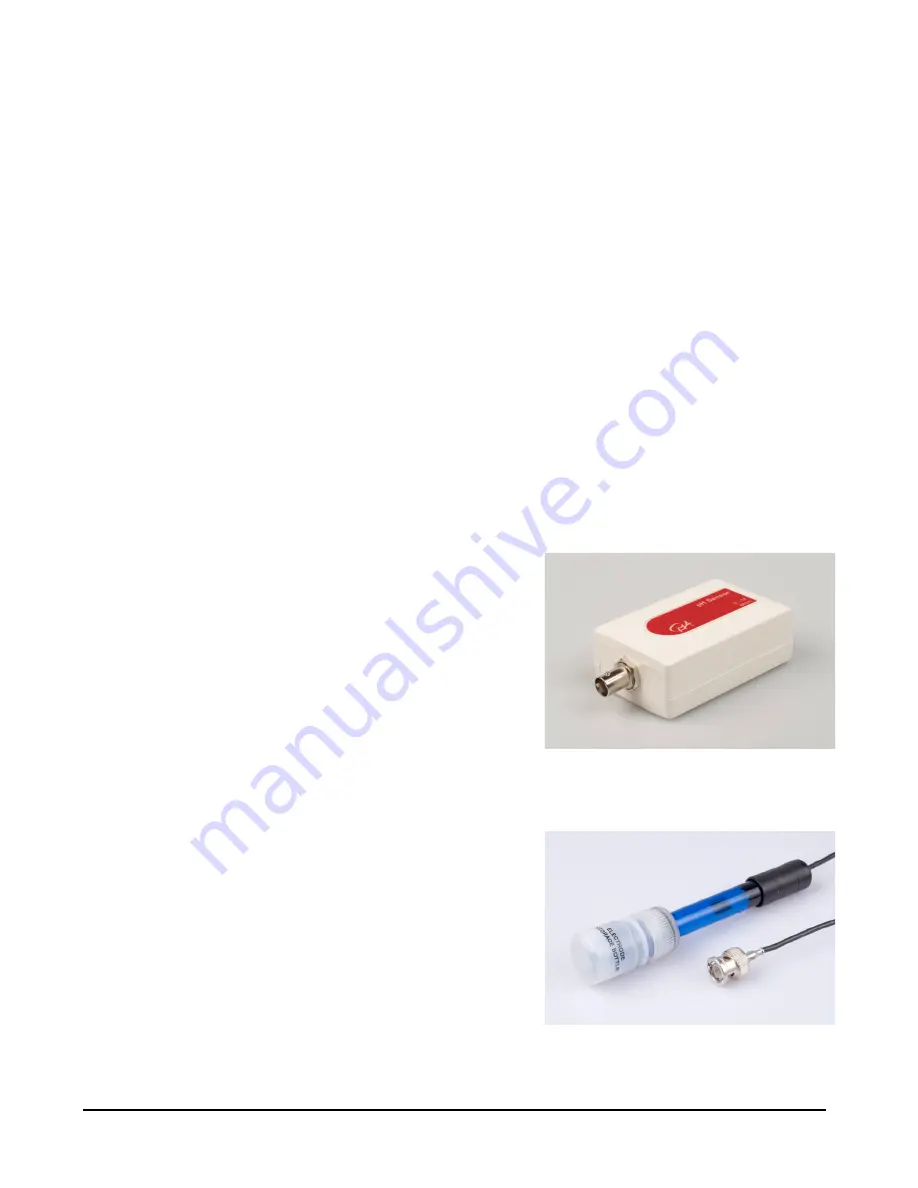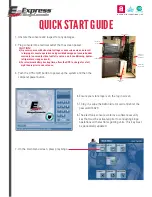
2 |
BT61i pH Sensor User’s Guide
Short description
The CMA pH Sensor is a general-‐purpose pH measurement system that allows
measuring the degree of acidity/pH value of a solution in the range between 0 and 14.
The sensor consists of a pH amplifier and pH electrode. The pH Electrode (031) is not
delivered with the pH sensor and has to be purchased separately.
The pH Sensor can be directly connected to analog BT inputs of the CMA interfaces.
The sensor cable BT -‐ IEEE1394 needed to connect the sensor to an interface is not
supplied with the sensor and has to be purchased separately (CMA Article BTsc_1).
Sensor recognition
The pH Sensor has a memory chip (EEPROM) with information about the sensor: its
name, measured quantity, unit and calibration. Through a simple protocol this
information is read by the CMA interfaces and the sensor is automatically recognized
when it is connected to these interfaces.
If your pH Sensor is not automatically detected by an interface you have to manually
set up your sensor by selecting it from the Coach Sensor Library.
pH Amplifier
The CMA pH amplifier is a device, which allows a
standard combination pH electrode (such as the
CMA pH Electrode (031)) to be monitored by a lab
interface. The pH electrode is connected to the pH
amplifier via BNC connector located on one end of
the sensor box. The pH amplifier adjusts the voltage
produced by the pH electrode to a range between 0
to 5 V, which can be measured by an interface.
pH Electrode
The CMA pH electrode is designed to make
measurements in the pH range of 0 to 14.
It has a coax cable, with a BNC connector.
The electrode (made from glass) is built in a plastic
tube with an opening at the bottom side. It is
supplied in a bottle filled with a protective solution.
When the pH electrode is not being used, it must be
kept in this liquid. For use and maintenance of the
CMA pH electrode follow instructions given in its
User’s Guide.
Figure 1.
The pH Amplifier (BT61i).
Figure 2.
The pH Electrode (031).






















